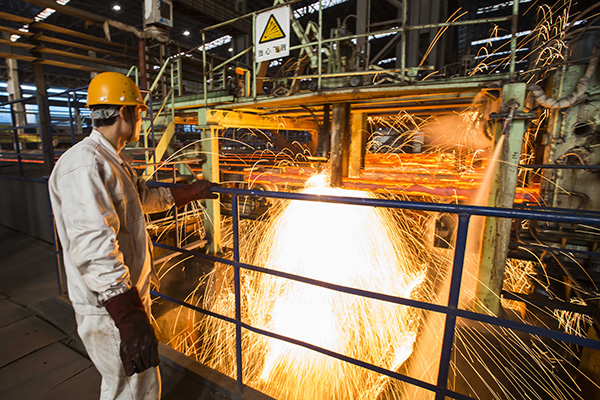Chinese steelmakersmust defend their legal rights
(China Daily) Updated: 2016-05-31 07:56
 |
|
A worker at a steel company in Lianyungang, Jiangsu province, in January 2015. The steel sector will reduce capacity by 100 to 150 million metric tons in five years, according to China's top economic planner. [Photo/China Daily] |
China resolutely opposes an investigation by the US International Trade Commission into complaints of alleged trade secret thefts by 40 Chinese steel companies, and should encourage its firms to legally defend themselves, said China's Commerce Ministry on Friday. Beijing Youth Daily commented on Monday:
United States Steel Corp, which launched a complaint under Section 337 of the main US tariff law, is seeking to halt nearly all imports from China's largest steel producers and trading houses. This is not the first time that the West has given Chinese steel companies a difficult time in recent months. Earlier this year the European Union imposed a series of tariffs on steel products manufactured in China.
Why Chinese steelmakers often fall prey to trade protectionism and exclusion has a lot to do with their enormous output which accounts for approximately half of the global steel output. With the domestic market saturated, they have doubled their exports as the renminbi has devalued and Western economies have increased their demand for steel products as they slowly but steadily recover from the 2008 global financial crisis.
However, the United States, in particular, has certain political concerns about China's steelmakers, whose products account for only 7 percent of the total steel imports by the US.
It tends to blame China, the world's largest steelmaker, for the uncompetitiveness of US companies. Especially with a dog-eat-dog presidential election underway, such a blame game is often used to help the candidates to win more votes, and the elections are often followed by a rise in trade protectionism.
Therefore, on the one hand, the Chinese government should encourage and instruct its firms to defend their legal rights in accordance with relevant WTO rules. On their part, Chinese steelmakers need to make sure their products meet requirements, and the overcapacity in the domestic industry needs to be eliminated.

I’ve lived in China for quite a considerable time including my graduate school years, travelled and worked in a few cities and still choose my destination taking into consideration the density of smog or PM2.5 particulate matter in the region.











